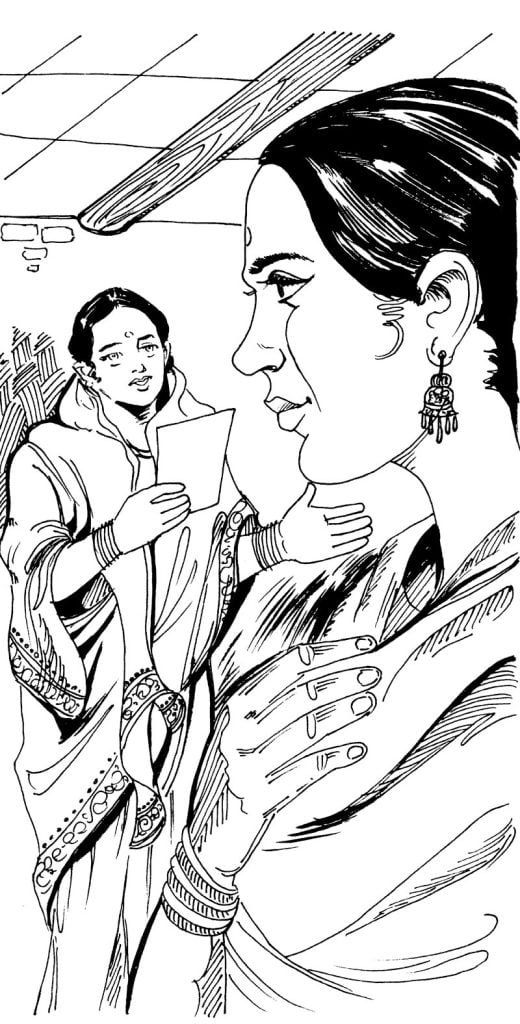Ramdulari was happy that finally her Nanhe had grown up into a responsible young man who had dedicated himself into the cause of the nation. Sometimes she wished her son had gotten into a profitable business or secured a job with reasonable salary.
The Congress party and the freedom politics was big sacrifices and little money.
But Lal Bahadur was proud of being a full time Congress worker and a soldiers of the freedom. His life had a noble purpose. He was assigned the party work in Ram Nagar and Mirzapur areas. The people of the area knew him as a dedicated political activist.
To some measure Lal Bahadur has earned popularity for himself as a leader and the respect of the people.
Most of the youngmen held revolutionary youth as their heroes. The Congressmen were like silent revolutionaries. One of the young women named Lalmani or Lalita had seen Lal Bahadur go around feverishly spreading the message of the freedom. Lal Bahadur was a short young man but had towering spirit. She like the young leader.
Lalita’s mother Kaushalya Devi knew Ramdulari and wanted one of her daughters marry her son Lal Bahadur.
She talked to the later.
Ramdulari was pleased at the offer. But she could not say ‘yes’ straight away. There was a glitch. Kaushalya’s family was rich but she and her son were poor. The marriage between the unequals required caution. She hoped that fortune would smile on her sooner or later.

She asked for some time to consider the proposal.
Kaushalya Devi thought that rich-poor divide mattered little. She was ready to accept Lal Bahadur as living in son-in-law. Only thing she was not clear about was that which of the daughters would be paired with him. She had no idea about Lalita’s secret love for the small young man.
One day Kaushalya revealed that she had other daughter in mind for the youngman.
It greatly upset Lalita.
She prayed to God to set things right. Her prayer was answered. Her sister’s alliance was shifted to another youngman.
Kaushalya again raised the matter of alliance with Ramdulari. This time she quoted the name of Lalita for Lal Bahadur.
By now Ramdulari had softened up on the issue of marriage. She had no objection to the alliance since it had now become clear that Kaushalya family was not arrogant.
Both the families got together and engagement formalities were gone through in absence of Lal Bahadur Shastri.
The mother informed her son that his engagement with Lalita had been performed on 9th May, 1928. Ramdulari made it clear that she would take no dowry. Only token amount of one rupee, a few yards of Khadi and a Charkha (Spinning wheel) would suffice.
Lal Bahadur received the information when he was at Meerut. He was stunned and felt angered in his initial reactions. His marriage being decided without taking him in confidence looked outrageous.
He mulled over the issue and the thinking of his loving mother.
Why would she do such a thing? Then, he realised that it was her love for him that made her do that. For her she would always remain little Nanhe however irrational it may look to others. And the fact was that during Nanhe’s life so far they had been dependent on the relatives. She herself could give nothing personally to her Nanhe except her love. All those years she must have dreamt of million goodies she would have given to her Nanhe if possible. By choosing bride for her son without telling him she was psychologically compensating for all those barren years when she couldn’t manage even a toy for him.
The realisation made Lal Bahadur smile. The bride she had chosen was her cumulated surprise gift for 23 birth days she could give nothing. Now he had no objection to marrying the girl chosen by her to honour her sacred sentiments.
He conveyed his assent and the wedding was fixed for 16th May, the same year.
The wedding took place in Mirzapur on the scheduled day. As Lal Bahadur wished the ceremony was kept simple. There was no pomp and show. And he made it clear that he would not except any gift other than a piece of Khadi and a spinning wheel.
During the ceremony Lal Bahadur showed his unorthodox mind and a reformist trait. He declared, “I want my bride and me to recite the wedding oaths and chants ourselves instead of the priest (Purohit) reciting them as traditionally is done.”
The wedding guests were stunned. They looked at one another. Many of them were confused. The women were worried fearing some glitch. Some were suspicious about some political game.
But Lal Bahadur explained, “We two are to follow the oath taken before the holy fire all our lives. So, we must know what exactly we are pledging to each other by reciting the oaths ourselves to be truly committed.”
Now the guests understood the honest mind of the bridegroom. They appreciated it. The elders also respected the views of the young leader.
The oaths were taken by the groom and the bride personally as Lal Bahadur had demanded to the chagrin of the orthodox mob. But it become clear that Lal Bahadur was a man of his own mind who would not hesitate in breaking traditions if he thought it fit to do so.

